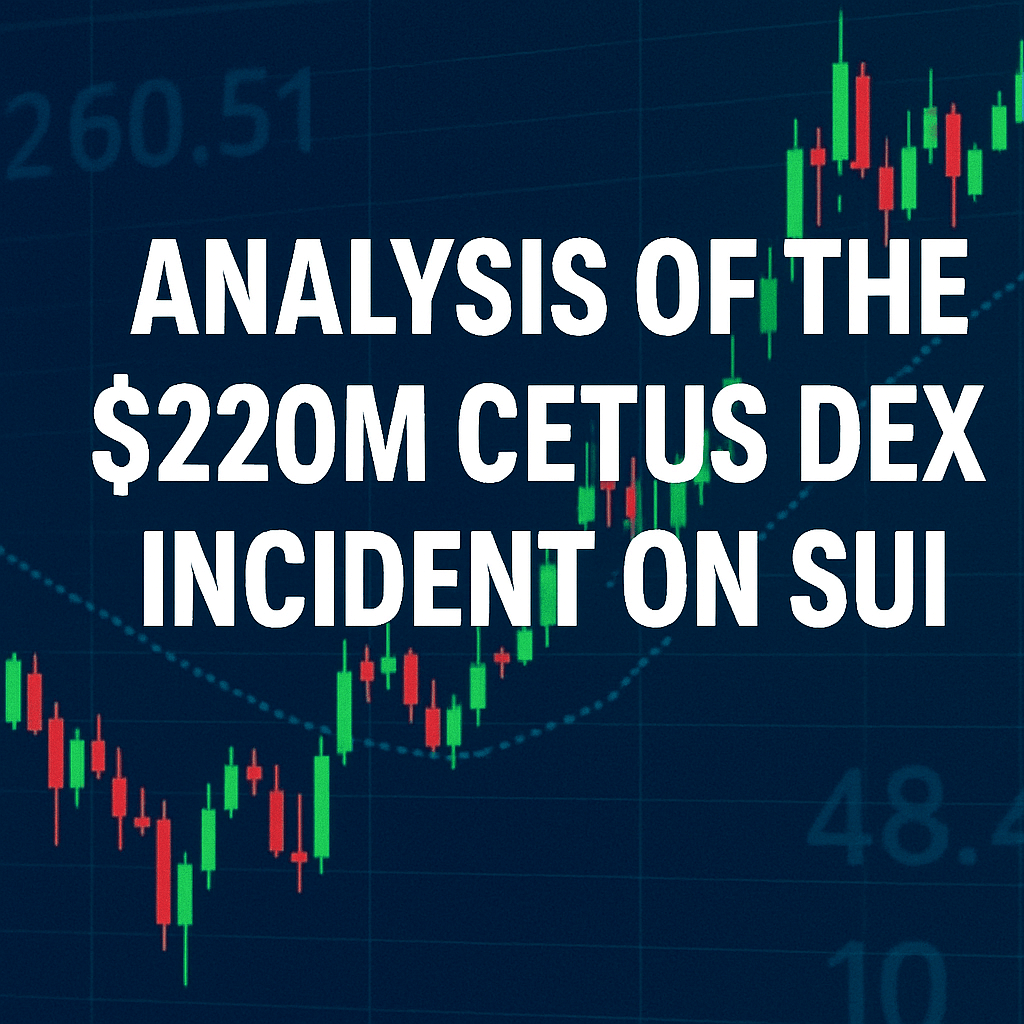Analysis of the $220M Cetus DEX Incident on Sui


The recent exploit of the Cetus decentralized exchange (DEX) on the Sui blockchain resulted in an astonishing loss of $220 million in a matter of minutes. This incident has raised significant concerns regarding security vulnerabilities within the decentralized finance (DeFi) space and highlights the importance of rigorous code auditing.
Details of the Exploit
On the evening of the exploit, the attacker identified a critical flaw in the mathematics library utilized by the Cetus protocol. It was a bug that had reportedly gone undetected during previous audits. The specific vulnerability allowed the hacker to manipulate calculations concerning asset valuations, enabling them to withdraw an amount that vastly exceeded their actual holdings.
Technical Aspects of the Bug
The bug may have stemmed from improper checks within the smart contract’s logic that determine the value and balance of user pools. Protocols such as Cetus rely heavily on mathematical computations to execute swaps, determine fees, and manage liquidity pools. If these computations are compromised, it opens the doors to exploitative maneuvers. Such vulnerabilities underline the necessity of developing more robust auditing methods and security practices in the rapidly evolving DeFi landscape.
Response from the Community and Developers
In the wake of the incident, Cetus developers and the broader Sui community have initiated a multi-pronged response. They have engaged with cybersecurity firms to conduct a comprehensive audit of the existing codebase and employed forensic experts to trace the stolen assets across the blockchain.
Strategies for Mitigating Future Risks
1. Enhanced Auditing: Regularly scheduled audits by third-party firms specializing in blockchain security should become a standard practice. These audits should not only focus on code but also examine logic flows and potential edge cases.
2. Bug Bounty Programs: Engaging the broader developer community through bug bounty programs may incentivize individuals to find and report vulnerabilities before nefarious actors can exploit them.
3. Real-time Monitoring Systems: Implementing advanced monitoring systems to oversee transactions and detect anomalous behavior in real-time could help in early detection of similar exploits.
The Future of DEX Security
This event serves as a stark reminder of the inherent risks associated with decentralized exchanges. While the decentralized ethos of cryptocurrency promotes transparency and accessibility, it also necessitates a greater emphasis on security. As DeFi continues to expand, the community’s capacity to safeguard these innovative financial systems must evolve in tandem. Furthermore, developers need to prioritize user education about potential risks and safeguard measures.
The Cetus DEX exploit exemplifies a critical learning opportunity for the industry. As the dialogue around DEX security matures, it can ultimately lead to more secure platforms and heighten the overall resilience of the DeFi ecosystem.